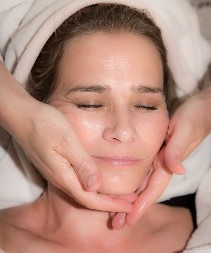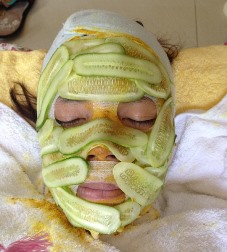How to Choose the Best Esthetician Program near Philadelphia Missouri
 Since you have made a decision to enter the field of cosmetology and attend an esthetician school near Philadelphia MO, the task starts to find and enroll in the right program. It’s important that the school you choose not only provides the necessary education for the specialty you have decided on, but also readies you for passing the licensing examination. When you begin your initial search, you might be somewhat unclear about the distinction between beauty schools and cosmetology schools. Well don’t be, because the names are essentially interchangeable and both refer to the same kind of school. We’ll speak a little bit more about that in the following segment. If you intend on commuting to classes you will need to locate a school that is within driving distance of your Philadelphia residence. Tuition will likewise be a critical consideration when evaluating prospective schools. Just keep in mind that because a school is the closest or the lowest cost it’s not necessarily the right option. There are a number of other qualifications that you should evaluate when comparing schools, for example their reputation and accreditation. We will go over what questions you should ask regarding the cosmetology schools you are considering later in this article. Before we do, let’s talk a bit about what cosmetology is, and what types of training programs are available.
Since you have made a decision to enter the field of cosmetology and attend an esthetician school near Philadelphia MO, the task starts to find and enroll in the right program. It’s important that the school you choose not only provides the necessary education for the specialty you have decided on, but also readies you for passing the licensing examination. When you begin your initial search, you might be somewhat unclear about the distinction between beauty schools and cosmetology schools. Well don’t be, because the names are essentially interchangeable and both refer to the same kind of school. We’ll speak a little bit more about that in the following segment. If you intend on commuting to classes you will need to locate a school that is within driving distance of your Philadelphia residence. Tuition will likewise be a critical consideration when evaluating prospective schools. Just keep in mind that because a school is the closest or the lowest cost it’s not necessarily the right option. There are a number of other qualifications that you should evaluate when comparing schools, for example their reputation and accreditation. We will go over what questions you should ask regarding the cosmetology schools you are considering later in this article. Before we do, let’s talk a bit about what cosmetology is, and what types of training programs are available.
Defining Cosmetology
 Cosmetology is an occupation that is everything about making the human body look more beautiful through the application of cosmetics. So of course it makes sense that many cosmetology schools are regarded as beauty schools. Many of us think of makeup when we hear the word cosmetics, but actually a cosmetic can be almost anything that enhances the appearance of a person’s skin, hair or nails. In order to work as a cosmetologist, almost all states mandate that you undergo some kind of specialized training and then be licensed. Once you are licensed, the work settings include not only Philadelphia MO beauty salons and barber shops, but also such businesses as spas, hotels and resorts. Many cosmetologists, once they have acquired experience and a client base, launch their own shops or salons. Others will begin seeing customers either in their own residences or will travel to the client’s home, or both. Cosmetology college graduates are known by many names and work in a wide range of specialties including:
Cosmetology is an occupation that is everything about making the human body look more beautiful through the application of cosmetics. So of course it makes sense that many cosmetology schools are regarded as beauty schools. Many of us think of makeup when we hear the word cosmetics, but actually a cosmetic can be almost anything that enhances the appearance of a person’s skin, hair or nails. In order to work as a cosmetologist, almost all states mandate that you undergo some kind of specialized training and then be licensed. Once you are licensed, the work settings include not only Philadelphia MO beauty salons and barber shops, but also such businesses as spas, hotels and resorts. Many cosmetologists, once they have acquired experience and a client base, launch their own shops or salons. Others will begin seeing customers either in their own residences or will travel to the client’s home, or both. Cosmetology college graduates are known by many names and work in a wide range of specialties including:
- Estheticians
- Hairdressers
- Hairstylists
- Beauticians
- Barbers
- Manicurists
- Nail Technicians
- Makeup Artists
- Hair Coloring Specialists
- Electrolysis Technicians
As earlier mentioned, in the majority of states practicing cosmetologists have to be licensed. In a few states there is an exception. Only those performing more skilled services, such as hairstylists, are required to be licensed. Other people employed in cosmetology and less skilled, including shampooers, are not required to become licensed in those states.
Click Here to Get Free Information on Esthetician Schools Near You!
Esthetics Certificates and Degrees
 There are primarily two pathways offered to receive esthetician training and a credential upon completion. You can enroll in a certificate (or diploma) program, or you can pursue an Associate’s degree. Certificate programs usually call for 12 to 18 months to complete, while an Associate’s degree ordinarily takes about 2 years. If you enroll in a certificate program you will be instructed in all of the main areas of cosmetology. Shorter programs are available if you prefer to specialize in just one area, such as esthetics. A degree program will also likely feature management and marketing training in order that graduates are better prepared to operate a parlor or other Philadelphia MO business. Higher degrees are not common, but Bachelor and Master’s degree programs are offered in such areas as salon or spa management. Whichever type of program you choose, it’s imperative to make sure that it’s recognized by the Missouri Board of Cosmetology. Numerous states only certify schools that are accredited by certain respected organizations, including the American Association of Cosmetology Schools (AACS). We will examine the advantages of accreditation for the school you decide on in the upcoming section.
There are primarily two pathways offered to receive esthetician training and a credential upon completion. You can enroll in a certificate (or diploma) program, or you can pursue an Associate’s degree. Certificate programs usually call for 12 to 18 months to complete, while an Associate’s degree ordinarily takes about 2 years. If you enroll in a certificate program you will be instructed in all of the main areas of cosmetology. Shorter programs are available if you prefer to specialize in just one area, such as esthetics. A degree program will also likely feature management and marketing training in order that graduates are better prepared to operate a parlor or other Philadelphia MO business. Higher degrees are not common, but Bachelor and Master’s degree programs are offered in such areas as salon or spa management. Whichever type of program you choose, it’s imperative to make sure that it’s recognized by the Missouri Board of Cosmetology. Numerous states only certify schools that are accredited by certain respected organizations, including the American Association of Cosmetology Schools (AACS). We will examine the advantages of accreditation for the school you decide on in the upcoming section.
Online Esthetician Training
Online esthetician programs are accommodating for Philadelphia MO students who are working full time and have family responsibilities that make it challenging to enroll in a more traditional school. There are many online cosmetology school programs offered that can be accessed via a desktop computer or laptop at the student’s convenience. More traditional cosmetology schools are frequently fast paced because many programs are as short as six or eight months. This means that a substantial amount of time is spent in the classroom. With internet courses, you are covering the same amount of material, but you are not spending many hours outside of your home or driving to and from classes. On the other hand, it’s important that the program you pick can provide internship training in local salons and parlors so that you also receive the hands-on training necessary for a complete education. Without the internship portion of the training, it’s difficult to gain the skills necessary to work in any facet of the cosmetology field. So don’t forget if you decide to enroll in an online program to confirm that internship training is provided in your area.
Questions to Ask Esthetics Programs
 Following is a list of questions that you need to research for any esthetician training school you are contemplating. As we have previously discussed, the location of the school relative to your Philadelphia home, in addition to the cost of tuition, will undoubtedly be your initial qualifiers. Whether you want to pursue a certificate, diploma or a degree will probably be next on your list. But once you have reduced your school options based on those preliminary qualifications, there are even more factors that you should research and take into consideration before enrolling in a cosmetology program. Following we have compiled several of those supplemental questions that you should ask each school before making a final decision.
Following is a list of questions that you need to research for any esthetician training school you are contemplating. As we have previously discussed, the location of the school relative to your Philadelphia home, in addition to the cost of tuition, will undoubtedly be your initial qualifiers. Whether you want to pursue a certificate, diploma or a degree will probably be next on your list. But once you have reduced your school options based on those preliminary qualifications, there are even more factors that you should research and take into consideration before enrolling in a cosmetology program. Following we have compiled several of those supplemental questions that you should ask each school before making a final decision.
Is the Program Accredited? It’s essential to make certain that the esthetician training program you enroll in is accredited. The accreditation should be by a U.S. Department of Education certified local or national organization, such as the National Accrediting Commission for Cosmetology Arts & Sciences (NACCAS). Programs accredited by the NACCAS must meet their high standards assuring a quality curriculum and education. Accreditation can also be important for obtaining student loans or financial aid, which often are not available in 63463 for non- accredited schools. It’s also a prerequisite for licensing in some states that the training be accredited. And as a concluding benefit, numerous Philadelphia MO employers will not recruit recent graduates of non-accredited schools, or might look more favorably upon those with accredited training.
Does the School have a Good Reputation? Any esthetician school that you are seriously evaluating should have a good to outstanding reputation within the profession. Being accredited is an excellent starting point. Next, ask the schools for references from their network of businesses where they have placed their students. Confirm that the schools have high job placement rates, showing that their students are highly regarded. Check rating companies for reviews together with the school’s accrediting agencies. If you have any contacts with Philadelphia MO salon owners or managers, or someone working in the industry, ask them if they are familiar with the schools you are reviewing. They might even be able to recommend others that you had not considered. And finally, check with the Missouri school licensing authority to find out if there have been any grievances filed or if the schools are in total compliance.
What’s the School’s Specialty? Some esthetician schools offer programs that are comprehensive in nature, focusing on all areas of cosmetology. Others are more focused, offering training in a particular specialty, for instance hairstyling, manicuring or electrolysis. Schools that offer degree programs typically broaden into a management and marketing curriculum. So it’s essential that you choose a school that specializes in your area of interest. If your intention is to be trained as an esthetician, make certain that the school you enroll in is accredited and well regarded for that program. If your desire is to open a Philadelphia MO beauty salon, then you need to enroll in a degree program that will teach you how to be an owner/operator. Picking a highly rated school with a poor program in the specialty you are seeking will not provide the training you need.
Is Plenty of Live Training Provided? Studying and mastering esthetician techniques and abilities requires lots of practice on people. Ask how much live, hands-on training is furnished in the beauty lessons you will be attending. Some schools have salons on campus that enable students to practice their developing talents on real people. If a beauty academy furnishes limited or no scheduled live training, but rather relies predominantly on the use of mannequins, it might not be the best option for acquiring your skills. Therefore try to find other schools that provide this kind of training.
Does the School have a Job Placement Program? Once a student graduates from an esthetician program, it’s crucial that she or he gets aid in securing that initial job. Job placement programs are an integral part of that process. Schools that furnish assistance maintain relationships with Philadelphia MO employers that are looking for trained graduates available for hiring. Confirm that the schools you are contemplating have job placement programs and find out which salons and organizations they refer students to. Also, find out what their job placement rates are. Higher rates not only verify that they have broad networks of employers, but that their programs are highly respected as well.
Is Financial Assistance Offered? Many esthetician schools offer financial aid or student loan assistance for their students. Ask if the schools you are reviewing have a financial aid department. Consult with a counselor and learn what student loans or grants you may qualify for. If the school belongs to the American Association of Cosmetology Schools (AACS), it will have scholarships accessible to students too. If a school meets each of your other qualifications with the exception of expense, do not discard it as an alternative before you find out what financial aid may be available.
Best Esthetician Cosmetology Schools Philadelphia Missouri
Picking and enrolling in the right esthetician program is essential to obtain the proper training to become a licensed cosmetology practitioner. Be sure to ask all the questions that you need to so as to feel confident about your decision. Make certain to organize all of the responses you receive from the beauty school admissions departments, prioritize what matters the most to you, and then use that data to contrast schools. A sensible beginning in your due diligence process is to make sure that the academy and program you select are accredited and have excellent reputations within the field. You originally came to this website due to an interest in Best Esthetician Cosmetology Schools and wanting more information on the topic Aesthetician Training Schools. However, if you begin with that base, and answer the additional questions provided in this article, you will be able to filter your list of schools so that you can make the proper choice. Once you graduate and pass your licensing examination, you will be confident that you are ready to begin your career as a professional esthetician in Philadelphia MO.
More Beauty Spots in Philadelphia Missouri
Philadelphia
Philadelphia, sometimes known colloquially as Philly, is the largest city in the U.S. state and Commonwealth of Pennsylvania, and the sixth-most populous U.S. city, with a 2017 census-estimated population of 1,580,863.[6]Since 1854, the city has been coterminous with Philadelphia County, the most populous county in Pennsylvania and the urban core of the eighth-largest U.S. metropolitan statistical area, with over 6 million residents as of 2017[update].[4] Philadelphia is also the economic and cultural anchor of the greater Delaware Valley, located along the lower Delaware and Schuylkill Rivers, within the Northeast megalopolis. The Delaware Valley's population of 7.2 million ranks it as the eighth-largest combined statistical area in the United States.[5]
William Penn, an English Quaker, founded the city in 1682 to serve as capital of the Pennsylvania Colony.[8] Philadelphia played an instrumental role in the American Revolution as a meeting place for the Founding Fathers of the United States, who signed the Declaration of Independence in 1776 at the Second Continental Congress, and the Constitution at the Philadelphia Convention of 1787. Several other key events occurred in Philadelphia during the Revolutionary War including the First Continental Congress, the preservation of the Liberty Bell, the Battle of Germantown, and the Siege of Fort Mifflin. Philadelphia was one of the nation's capitals during the revolution, and served as temporary U.S. capital while Washington, D.C., was under construction. In the 19th century, Philadelphia became a major industrial center and a railroad hub. The city grew from an influx of European immigrants, most of whom came from Ireland, Italy and Germany—the three largest reported ancestry groups in the city as of 2015[update].[9] In the early 20th century, Philadelphia became a prime destination for African Americans during the Great Migration after the Civil War,[10] as well as Puerto Ricans.[11] The city's population doubled from one million to two million people between 1890 and 1950.
The Philadelphia area's many universities and colleges make it a top study destination, as the city has evolved into an educational and economic hub.[12][13] According to the Bureau of Economic Analysis, the Philadelphia area had a gross domestic product of US$445 billion in 2017, the eighth-largest metropolitan economy in the United States.[14] Philadelphia is the center of economic activity in Pennsylvania and is home to five Fortune 1000 companies. The Philadelphia skyline is expanding, with a market of almost 81,900 commercial properties in 2016,[15] including several nationally prominent skyscrapers.[16] Philadelphia has more outdoor sculptures and murals than any other American city.[17][18]Fairmount Park, when combined with the adjacent Wissahickon Valley Park in the same watershed, is one of the largest contiguous urban park areas in the United States.[19] The city is known for its arts, culture, cuisine, and colonial history, attracting 42 million domestic tourists in 2016 who spent US$6.8 billion, generating an estimated $11 billion in total economic impact in the city and surrounding four counties of Pennsylvania.[20] Philadelphia has also emerged as a biotechnology hub.[21]
